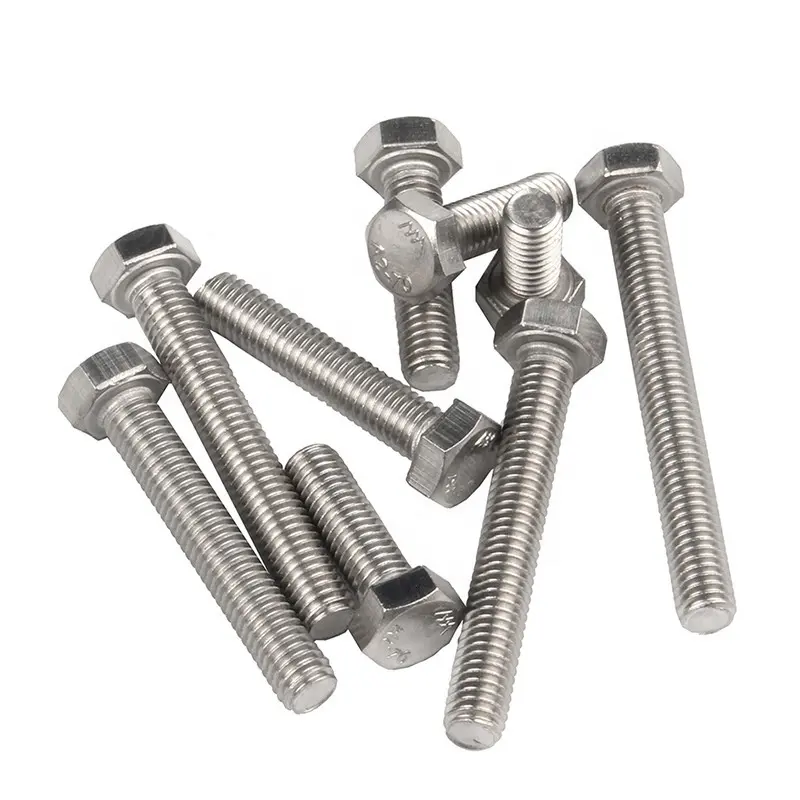

Stud Bolt Specifications for A193 B7 and A194 2H Materials Insights
Nov . 06, 2024 07:34 Back to list
Stud Bolt Specifications for A193 B7 and A194 2H Materials Insights
Understanding Stud Bolts A Focus on A193 B7 and A194 2H Standards
In various industrial applications, the integrity of structures and systems often relies on the robustness of bolting solutions. One of the key components in this category is the stud bolt, a fastener that has gained significant attention due to its durability and reliability. This article delves into the specifics of stud bolts, particularly focusing on the A193 B7 and A194 2H specifications, which are widely utilized in critical applications.
What is a Stud Bolt?
A stud bolt is a long cylindrical fastener that has threads on both ends and is designed to be installed with nuts. Unlike regular bolts that possess a head on one end, stud bolts feature identical threads on both ends, making them versatile for a variety of fastening needs. They are commonly used in heavy machinery, piping, and structural applications where high strength and tensile properties are required.
The Importance of Material Standards
The effectiveness of stud bolts is heavily influenced by the materials used in their manufacture. Within the realm of stud bolts, standards such as ASTM A193 and ASTM A194 provide guidelines that ensure these fasteners meet specific mechanical and chemical properties necessary for their respective applications.
- ASTM A193 B7 This specification pertains to alloy steel and stainless steel stud bolts used in high-temperature or high-pressure environments. B7 stud bolts are made from a chromium-molybdenum alloy steel and are typically quenched and tempered to achieve a minimum tensile strength of 125 ksi (approximately 862 MPa). The heat treatment process enhances their durability and ability to resist deformation under extreme conditions. Because of these characteristics, A193 B7 stud bolts are widely employed in the oil, gas, and chemical industries.
- ASTM A194 2H Complementing the A193 B7 stud bolts, ASTM A194 2H is a specification for high-strength nuts specifically designed to pair with A193 B7 studs. These nuts are made of carbon steel and are also subjected to heat treatment to achieve high mechanical strength. The 2H classification indicates that these nuts can sustain a tensile strength of up to 125 ksi. The compatibility of A194 2H nuts with A193 B7 studs is crucial for ensuring connection integrity, particularly in environments subject to thermal expansion and contraction.
stud bolt a193 b7 a194 2h

Applications and Benefits
Stud bolts conforming to A193 B7 and A194 2H standards find extensive applications across various sectors. They are fundamental in industries such as oil and gas, petrochemicals, power generation, and water treatment. These fasteners often secure flanges, valves, heat exchangers, and other critical components where safety and reliability are paramount.
The primary benefits of using A193 B7 stud bolts and A194 2H nuts include
1. High Strength and Durability Engineered to withstand significant mechanical stresses, these fasteners maintain their structural integrity under demanding conditions. 2. Temperature Resistance The materials used allow these bolts and nuts to function in high-temperature applications without losing their mechanical properties.
3. Corrosion Resistance While the A193 B7 standard is primarily for alloy steel, options exist for corrosion-resistant coatings, enhancing their lifespan in corrosive environments.
4. Versatility Their design allows for easy installation and maintenance, making them an ideal choice for applications requiring frequent assembly and disassembly.
Conclusion
In conclusion, stud bolts like A193 B7 and corresponding nuts like A194 2H are essential components in ensuring the reliability and safety of various industrial systems. Understanding the specifications and properties of these fasteners is crucial for engineers and technicians involved in the design and maintenance of systems where performance and safety are non-negotiable. By adhering to these standards, industries can enhance operational reliability while minimizing downtime and maintenance costs.
Latest news
-
Hot Dip Galvanized Bolts-About LongZe|High Strength, Corrosion Resistance
NewsJul.30,2025
-
High-Strength Hot Dip Galvanized Bolts - Hebei Longze | Corrosion Resistance, Customization
NewsJul.30,2025
-
Hot Dip Galvanized Bolts-Hebei Longze|Corrosion Resistance&High Strength
NewsJul.30,2025
-
High-Strength Hot-Dip Galvanized Bolts-Hebei Longze|Corrosion Resistance&High Strength
NewsJul.30,2025
-
Hot Dip Galvanized Bolts-Hebei Longze|Corrosion Resistance&High Strength
NewsJul.30,2025
-
Hot Dip Galvanized Bolts - Hebei Longze | Corrosion Resistance, High Strength
NewsJul.30,2025

